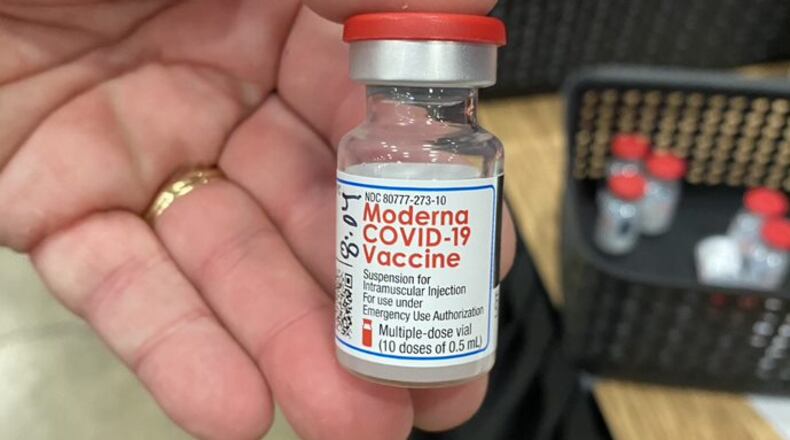He highlighted times when a lack of fairness or justice has led to barriers. For example, in the infamous Tuskegee experiments, African American men enrolled to study syphilis were denied adequate treatment. More recently, in 2015, residents of the predominantly Black community of Flint were told their water was safe when it contained high amounts of lead.
“Ultimately, the result of these events is a lack of trust in government and the medical system,” Miller said.
Miller said during patient visits he tries to empathize with them by listening to what they’re saying and providing reassurances.
It’s also important to provide support and information such as asking if it is OK with the patient to share resources that address concerns about vaccination, he said, and providers should explore any other questions patients might have.
Dr. Gary LeRoy said when he is at his clinical practice at East Dayton Health Center he tries to set aside the first three to five minutes to check how they and family are getting through the pandemic and what are their needs. They also talk about vaccines and he said the day before, about half of patients said they wanted it and half said they did not.
He said most doctors and nurses have heard patients say they aren’t going to do anything unless their provider tells them to do that.
“So it behooves us to first of all, do no harm. We are living through a once in multiple generations, a pandemic. And it’s all in and we have to do things like this so that we’re all on the same page so that we can give credible information to our community members and our patients,” LeRoy said.
Gov. Mike DeWine, who spoke at the symposium, told the 150 participants that it feels good to be on the offense because of the vaccines, though he described challenges still ahead.
“This really is the time that we’ve been waiting for the time that we could go on the offense. We’ve been playing defense for about nine months or so,” DeWine said.
About the Author

